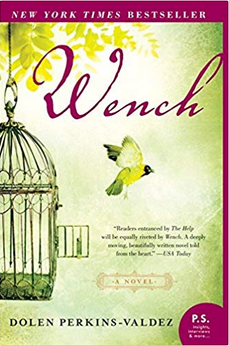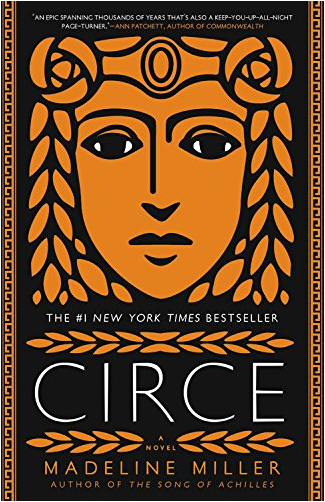When Your “To-Be-Read” Becomes Your “To-Be-Heard”
Most devoted bibliophiles have specific preferences when it comes to reading. Some only feel satisfied when they have a paperback that they can crack open and fold over, front cover pressed to back. Others, perhaps having vowed to jettison their material possessions and own only one hundred objects, download all their reading material to an iPad and never touch a physical book again.
For me, a physical book will always top the list of my preferred methods of reading. I find a certain emotional freight bound up in handling a physical book that materially adds to the joy of reading. If I’m reading for review, I prefer paperback because I don’t feel so bad about dragging it around with me everywhere and perhaps even marking it up. I always handle a hardcover more carefully, removing the dust jacket until I have finished reading and am ready to shelve it again.
I started using e-readers later than most, and I certainly appreciate the niche they fill. When you finish your last bit of reading material just as you are about to board that flight across the Pacific, downloading a couple books as you walk down the jetway spells the difference between extending your vacation by another five hours and falling into barking insanity at thirty thousand feet. But it’s still a cold, hard interface, and its digital navigation will always be clunkier to me than just flipping through the pages of a book.
If I was late getting into e-books, I was probably last in line to try out audiobooks. I’ll cop to having listened to a few all the way back when they came out in sets of twenty or so cassettes per book, but that was painful. I think I understood and retained more of Adam Tooze’s The Deluge: The Great War, America and the Remaking of the Global Order, 1916-1931 by listening to it, and then going to the book to re-read certain passages, but juggling those fifteen or so CDs was still a bit much.
Cue the revelation brought by a subscription to Audible. I downloaded the app and my first book at the start of a road trip from Maryland to Arizona when I was helping my best friend move in January. We covered those 2,200 miles in three and a half days, hopped up on caffeine and the dulcet tones of Michelle Obama reading her autobiography, Becoming. The caffeine gave us palpitations, but Michelle held us in her sway as the miles rolled by.

Since then, I have used Audible almost exclusively to make a dent in my to-be-read stack, which seems only to grow and never to shrink. (It doesn’t help that I have a rule that I have to buy a book whenever I visit an indie bookstore.) But this way I am doubling my book consumption— listening to one book on the way to and from work, and reading a second book when I’m safely at home. Also, as I found with Deluge, I like having the hardcopy so I can go back and read passages I’ve listened to, particularly when there is something I feel I’ve missed.
My first couple of “listens” were in non-fiction (including Helen Macdonald’s engaging memoir, H is for Hawk), but fiction is where this medium really comes into its own. I’m finding there’s a special joy in having an author’s words wash over me, which makes it hard sometimes to get out of the car — unfortunate when I’m already running late to a meeting.
There’s no question, though, that listening to a book is entirely different than reading it. Replacing the voice in your head with the performative talents of an exceptional reader makes a material difference in the experience of the book. It’s not halfway to watching a movie, but it does replace some of your imagination. Does listening deepen the experience or do too much of the work for you? Is listening more passive than reading?
I don’t think so. Active listening demands concentration and effort. The engagement required of the listener is at least equivalent to that of the reader. Two of my most recent Audible selections were Wench, by Dolen Perkins-Valdez, and Circe, by Madeline Miller, both of which captivated me.

Wench was read by Quincy Tyler Bernstine. She has a deceptively soft, young-sounding voice with a southern accent, but she made each of the characters in this third-person narrative of slaves and their masters at an Ohio summer resort come alive. And hearing the dialog spoken gave it a richness and cadence that I feel certain I would not have achieved in my head, with passages such as:
“Who don’t got childrens? But what I’m gone do for my child as a slave woman? I need to run off so I can try to get my boy out. As long as I is a slave, ain’t nothing gone change.”
Circe is a first-person narrative of the nymph/witch whom we know from Homer’s Odyssey, though here she is the hero of her own complex, nuanced story. The upper-crust British accent of Perdita Weeks felt perfect for the title character, who spends much of her time as an isolated observer, exiled and alone. I found that one benefit of listening to a book that concerns Greek mythology is not having to mentally stumble over names such as Pasiphaë or Aeëtes.
I loved both of these books, though I can’t say whether listening to them rather than reading them helped me to love them more. I guess my next experiment could be to read one of the books in my TBR stack, and then listen to it to judge the difference. But, really, does it matter? Experiencing a book you love, in any form, is all that counts.
Jennifer Bort Yacovissi
Jenny Yacovissi grew up in Bethesda, Maryland, just a bit farther up the hill from Washington, D.C. Her debut novel Up the Hill to Home is a fictionalized account of her mother’s family in Washington from the Civil War to the Great Depression. In addition to writing historical and contemporary literary fiction, Jenny reviews regularly for the Washington Independent Review of Books and the Historical Novel Society. She belongs to the National Book Critic’s Circle and PEN/America. She also owns a small project management and engineering consulting firm, and enjoys gardening and being on the water. Jenny lives with her husband Jim in Crownsville, Maryland. To learn more about the families in Up the Hill to Home and see photos and artifacts from their lives, visit http://www.jbyacovissi.com/about-the-book.
- Web |
- More Posts(33)